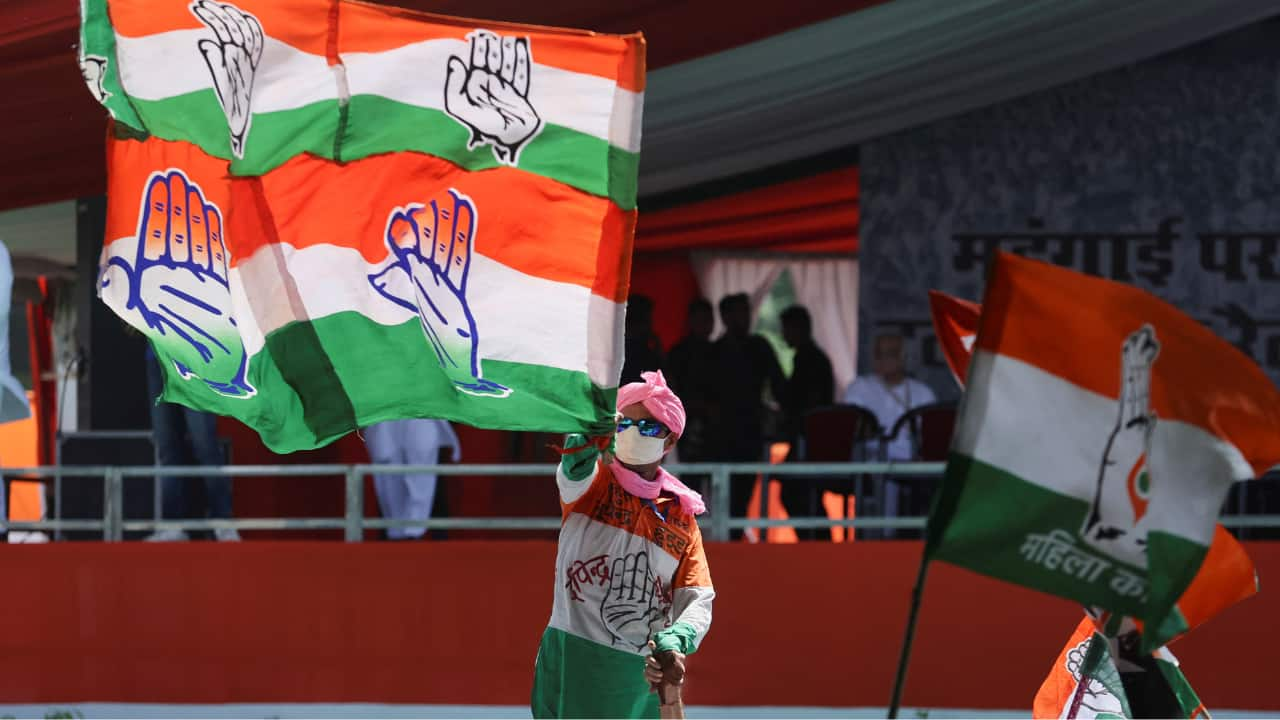 |
|
The Indian National Congress is set to hold a significant two-day meeting in Belagavi, Karnataka, from December 26th to 27th. This event, dubbed the 'Nav Satyagraha Baithak,' carries immense historical weight, marking the centenary of the 1924 Congress session presided over by Mahatma Gandhi. This session holds a unique place in history as the only one led by the revered leader. The gathering will bring together approximately 200 leaders, including prominent figures such as Congress president Mallikarjun Kharge, Rahul Gandhi, and Priyanka Gandhi Vadra, along with CWC members, chief ministers, and state unit presidents from across the country. The event is not merely a commemoration; it serves as a platform for the party to analyze the current political climate and strategize for the future.
The significance of the 1924 Belagavi session extends beyond its being the only one led by Gandhi. The period was marked by significant challenges, notably the lack of unity between Hindus and Muslims within the freedom struggle. Gandhi, following his release from prison, undertook a 21-day fast to bridge this critical divide. His address at the session underscores his commitment to non-violence, Hindu-Muslim unity, and the eradication of untouchability. He explicitly linked the fight against untouchability to the attainment of Swaraj (self-rule), highlighting its crucial role in achieving national independence. The session itself was attended by a constellation of prominent Congress leaders, including Jawaharlal Nehru, Sardar Vallabhbhai Patel, Sarojini Naidu, and Khilafat movement leaders Muhammad Ali Jauhar and Shaukat Ali, showcasing the broad support for Gandhi's vision.
The current Congress meeting aims to delve into the prevailing political context, scrutinizing the BJP government's policies and contrasting them with the Congress's ideology. A key focus will be the party's stance on the alleged insult of B.R. Ambedkar by Home Minister Amit Shah, an issue the Congress has vehemently pursued, demanding Shah's dismissal and a public apology. The choice of Belagavi as the venue is deeply symbolic, linking the present-day party deliberations to the historical context of Gandhi's leadership and the ideals he championed. The event also includes a planned rally, “Jai Bapu, Jai Bhim, Jai Samvidhan,” further emphasizing the confluence of Gandhian principles, Ambedkarite social justice, and the Indian Constitution.
The significance of this event lies in its ability to bridge the past and the present. By revisiting the historical context of Gandhi's leadership in 1924, the Congress hopes to reinvigorate its commitment to its core values and formulate strategies to counter the prevailing political landscape. The meeting serves not only as a commemorative event but as an opportunity to reiterate the party's ideological stance and chart a course for the future. The selection of Belagavi, a location deeply intertwined with the history of the Indian freedom struggle, adds a layer of symbolism and underscores the party's commitment to its historical legacy. The juxtaposition of the historical context with the contemporary political challenges provides a rich backdrop for understanding the Congress party's current strategies and objectives.
The two-day session will undoubtedly involve extensive deliberations on the current political climate and the BJP's governing policies. The Congress's response to the alleged slight against Ambedkar will be a central theme, reflecting the party's commitment to social justice and inclusivity. The meeting's outcomes will likely shape the Congress's future political strategies, impacting the party's approach to various legislative matters and its public discourse in the coming months. The event serves as a powerful demonstration of the Congress party's commitment to its historical roots while navigating the complexities of contemporary Indian politics. The selection of Belagavi as the venue not only adds historical weight but underscores the party's intention to connect its past ideals with the ongoing political battles.
The ‘Nav Satyagraha Baithak’ is more than a mere political gathering; it is a statement of intent. It is a reaffirmation of the Congress party's commitment to the principles of Mahatma Gandhi and its dedication to tackling the pressing socio-political challenges facing India today. The meticulously chosen venue, the symbolic rally, and the high-profile attendees all point towards a carefully orchestrated event designed to galvanize the party's support base and project a strong image of unity and purpose in the face of current political realities. The event's success will be measured not only by its immediate impact but also by its ability to shape the Congress's long-term political trajectory. The legacy of the 1924 session and the broader historical context will undoubtedly play a crucial role in shaping the outcomes and discussions of this significant meeting.
In conclusion, the Congress's centenary commemoration of Mahatma Gandhi's 1924 Belagavi session is more than just a historical event. It's a strategic political maneuver designed to reinforce the party's core values, address current political issues, and ultimately shape its future direction. The event’s symbolism, its historical backdrop, and the high-profile attendees all contribute to making it a pivotal moment in contemporary Indian politics. The legacy of Gandhi's leadership, the focus on social justice, and the party's response to the contemporary political landscape will all converge in Belagavi, making this a gathering of immense significance.
Source: Congress session in Karnataka's Belagavi begins tomorrow: How is the event linked to Mahatma Gandhi
